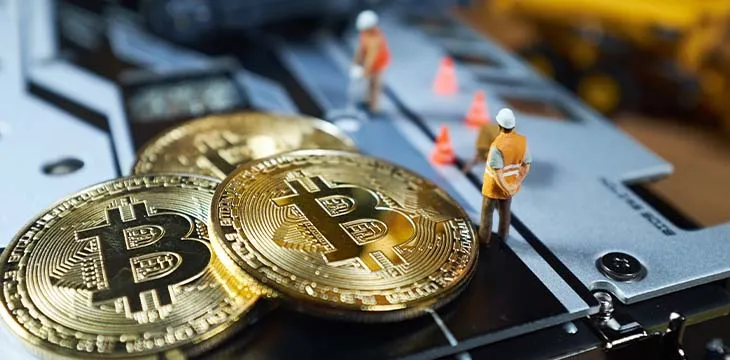|
Getting your Trinity Audio player ready...
|
BTC block reward miners in Kazakhstan can no longer mine and hodl their digital assets. A new law in the Central Asian country will force the miners to sell up to 75% of the mined assets and is drastically limiting their energy supply.
Kazakh President Kassym-Jomart Tokayev signed into law a draft bill that allows miners to tap into the national grid only when there’s a surplus. The country will distribute this surplus based on a bidding process, but it will only be to the licensed miners.
Kazakhstan, however, will still allow miners to operate if they generate their own electricity or import from neighboring countries.
The Central Asian country’s cheap power was one of the key factors behind its rise to become one of the world’s leading mining hubs. In 2022, Kazakhstan ranked only behind the United States and China in terms of BTC mining activity, per a Cambridge University report.
Under the new law, the country will also categorize and regulate miners under two broad categories. The first will encompass miners who own their mining infrastructure, including their data and hosting centers. The equipment, security, and even location must also meet certain conditions. Miners who own mining equipment but rely on hosting services from other companies will be regulated differently.
The new law also stipulates that miners must sell up to 75% of their mined BTC. Effective 2024, this stipulation is meant to give the government a better idea of the income the miners generate for tax purposes.
Kazakhstan is also seeking to regulate mining pools in one of the most comprehensive legal frameworks for BTC miners globally.
The new legislation comes at a time when the country is exploring a digital tenge. Last year, it was reported that Changpeng Zhao had courted the country’s central bank to issue the CBDC on BNB Chain. This is despite the network proving to be centralized and prone to censorship just months before when CZ made validators switch the network off for over eight hours.
Watch: Blockchain mining & energy innovation

 07-12-2025
07-12-2025 





